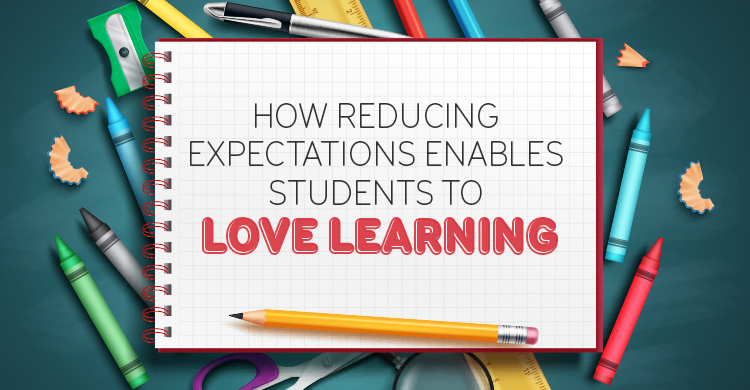“‘O Me! O Life! … life exists and identity, that the powerful play goes on, and you may contribute a verse.’ What will your verse be?” (Dead Poets Society, Robin Williams)
Developing student agency begins with a tiny kernel of inspiration, such as this moving query to the young boys in Dead Poets Society. These words are magical. It assumes each one of the boys in the huddle can and will have “a verse” all his own. In fact, for some, that very moment sets them on a journey they have yet to realize.
Dweck (2007) talks about motivational moments, when one is truly flattered by a verbal compliment or implicit positive feedback in the form of a pat on the back, an outstretched hand, or even a handwritten note. The acknowledgment, no matter how subtle or how overt, never goes unnoticed by the learner. These are the moments that can turn lives around. They are the tiny moments that say we are not only okay, we are special. It feels good. It spurs kids on to do even better next time. And it doesn’t take much to do this in genuine and authentic interactions with students.
Intellectual Humility
To set the tone in the classroom for high expectations for all, the climate is set with intention and care that develops into a culture of respect and appreciation of others’ ideas. It’s what the Google leadership refers to as intellectual humility or the ability to see the positive aspects of every idea, eventually replacing the impulsive put-downs that seem always to be on the tip of the tongue.
“It’ll Never Fly, Wilbur”
Starting with the tale, “It’ll Never Fly, Wilbur” to illustrate and emphasize the more typical put-down dialogues of peers, as opposed to the words of encouragement that might indeed inspire, think about the frequency of put-downs, not just in the classroom or playground, but by family, peers, and colleagues when someone excitedly shares a thought about something she wants to do.
Do these clever little put-downs ring a bell? “It’ll never fly, Wilbur.” “Not a bright idea, Thomas.” “It’s not relative, Albert.” It’s just so easy to brush them off with “been there, done that” kinds of dismissive remarks; let’s see if we can turn that around. Just for the exercise, working in pairs, have students generate a put-down about a famous person of accomplishment, similar to these. Tell them to produce at genius level. Share the remarks, and join in the laughter that follows.
“That’s a Good Idea, Because …”
After students enjoy the creative moment, try another exercise to turn the negatives into positives. It begins with these few words: “That’s a good idea, because …” Think about how it feels when someone says, “That’s a good idea because …” and gives a sound, viable reason for genuine consideration of the idea. To spark “inspire-speak” in the classroom, within the family circle, and around friends, use the “That’s a Good Idea, Because …” rule and see what happens.
Even though it may start out as kind of cynical and sarcastic, the positive words keep coming. Yet, in these early rounds, it is not as easy to compliment an idea as it is to put it down with one smart-aleck swipe. However, the smiles, the upward fluctuations in energy and enthusiasm, the flurry of activity that seem to flourish when the words are inspiring rather than demeaning are also readily evident, and people are quick to notice that is does feel good.
School leaders and classroom teachers, both real and fictional, often compliment others. They exemplify traits of creative, persistent risk-takers with spirit and vision. These educators show how they inspire students “to be all they are capable of being” (motto for State Universities of New York-SUNY). They are the ones who see something special in others and have the wherewithal, the caring and kindness, and the dedication and commitment to remark on what they recognize as unusual or beyond the ordinary skillfulness and talent. They see the potential for all youngsters as learners, on the brink of greatness. One never knows when that moment of breakthrough might occur. That said, the benefits that come with the recognition, appreciation, and acknowledgment of one’s talent and expertise are never wasted. In fact, it almost always has payoffs. Even more poignant is that the one giving the lift of magic with one’s words may never know the powerful ramifications that result.
Resources:
Bellanca, J. and R. Fogarty. (1993 2nd edition ). Catch them thinking: A handbook of classroom strategies. Arlington Heights, IL: Skylight Training and Publishing.
Byant, A. June 19, 2013. “Google hires.” New York Times.
Dweck, C. (2006). Mindset: The new psychology of success. New York: Random House.
Friedman, T. February. 22, 2014. “How to get a job at Google.” Hint: Getting hired is not about your G.P.A. It’s about what you can do and what you know.
Shulman, T. 1989. Dead Poets Society. Movie. Director, Peter Weir.
Entire Quote from Professor John Keating in Dead Poets Society:
“We don’t read and write poetry because it’s cute. We read and write poetry because we are members of the human race. And the human race is filled with passion. And medicine, law, business, engineering, these are noble pursuits and necessary to sustain life. But poetry, beauty, romance, love, these are what we stay alive for. To quote from Whitman, ‘O me! O life! … of the questions of these recurring; of the endless trains of the faithless, of cities fill’d with the foolish … what good amid these, O me, O life? Answer. That you are here—that life exists, and identity, that the powerful play goes on, and you may contribute a verse.’ That the powerful play goes on, and you may contribute a verse. What will your verse be?”
SUNY. 1960s. State University of New York: “Let Each Become All He Is Capable of Being”: New York: State University of New York.
[author_bio id=”341″][author_bio id=”53″]






